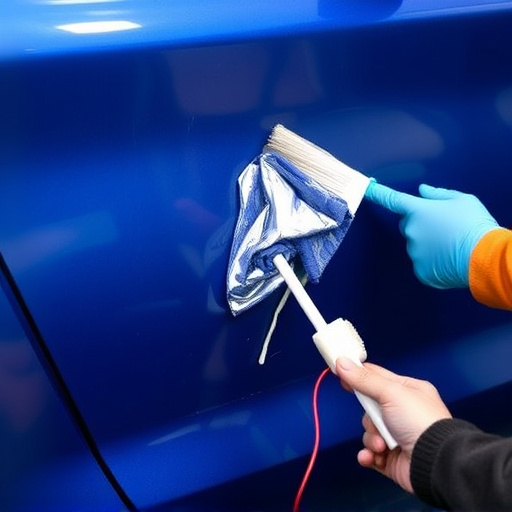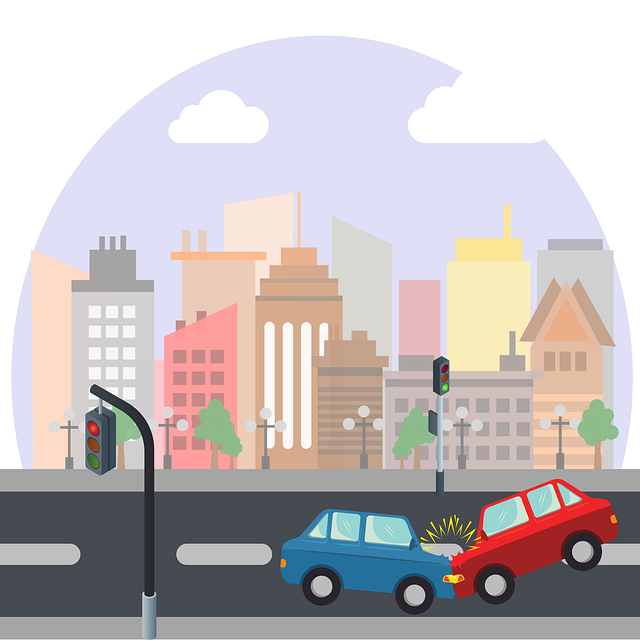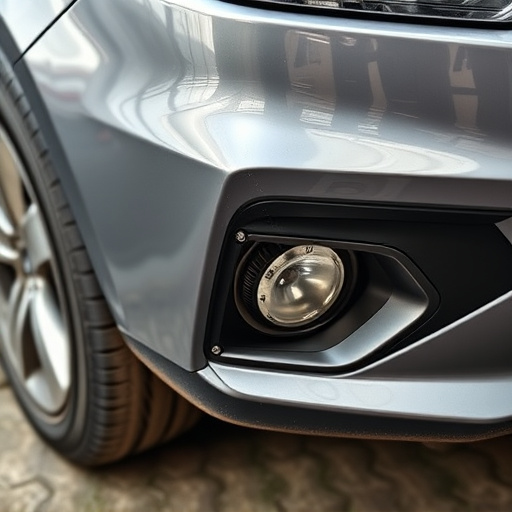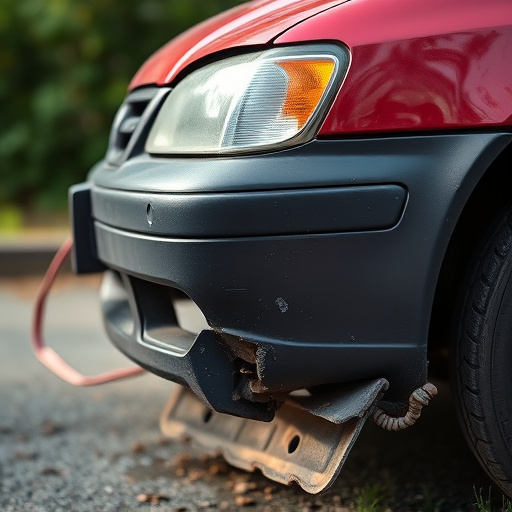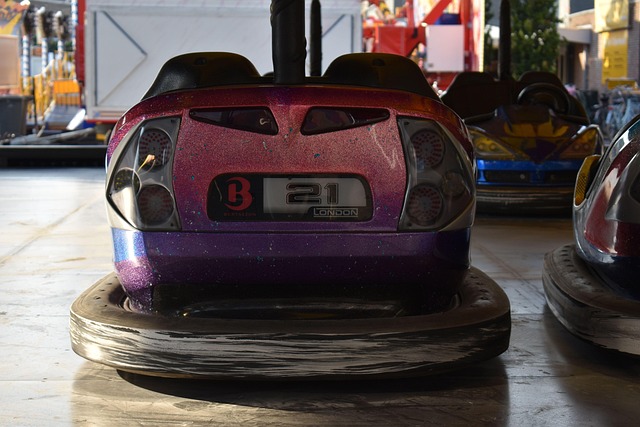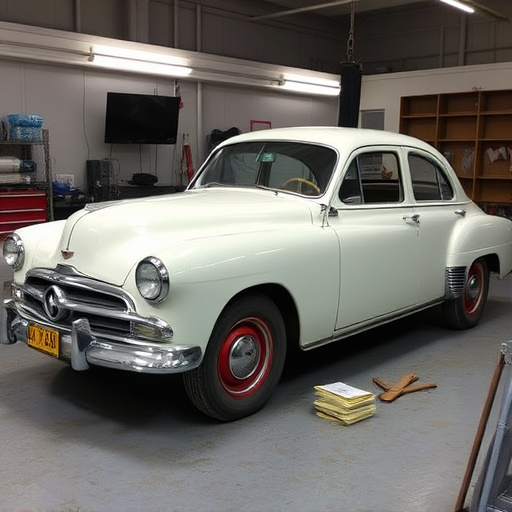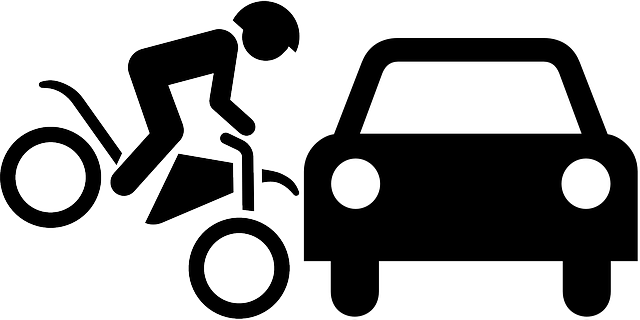Highway collision centers are strategic roadside hubs offering vital services during accidents and breakdowns. They provide immediate assistance, including towing, emergency support, and vehicle transport, ensuring driver safety. With advanced equipment like GPS tracking, digital design software, and precise welding machinery, these centers deliver efficient auto body repairs, minimizing disruption for drivers. Modern technology enhances their response times, accuracy, and overall effectiveness in restoring vehicles to pre-accident condition, ultimately contributing to improved road safety.
In today’s fast-paced world, a breakdown on the highway can be a harrowing experience. Enter Highway Collision Centers – the unseen heroes providing vital roadside recovery services. These centers play a crucial role in ensuring safety and minimizing disruption for stranded drivers. From initial response to comprehensive repair, they orchestrate every step of the process. Understanding their key roles and embracing modern technologies, these collision centers are revolutionizing roadside assistance, offering faster, more efficient solutions for those in need.
- Understanding Highway Collision Centers: The Unseen Heroes of Roadside Assistance
- Key Roles and Responsibilities in Roadside Recovery
- Modern Technologies and the Evolving Role of Highway Collision Centers
Understanding Highway Collision Centers: The Unseen Heroes of Roadside Assistance

Highway collision centers play an unsung yet vital role in ensuring road safety and providing roadside recovery services. These facilities act as crucial hubs for managing accidents, offering immediate assistance to drivers in distress, and facilitating efficient vehicle repairs. Often located strategically along highways, they are the unseen heroes who step into action when a vehicular mishap occurs.
These centers provide a range of services, from rendering initial aid and towing damaged vehicles to offering specialized body shop services like auto body restoration and vehicle dent repair. Their expertise lies in swiftly assessing accident scenes, extracting vehicles, and managing traffic flow while ensuring the safety of all involved. Moreover, their state-of-the-art facilities enable them to perform intricate repairs, utilizing advanced equipment for precision in auto body restoration.
Key Roles and Responsibilities in Roadside Recovery
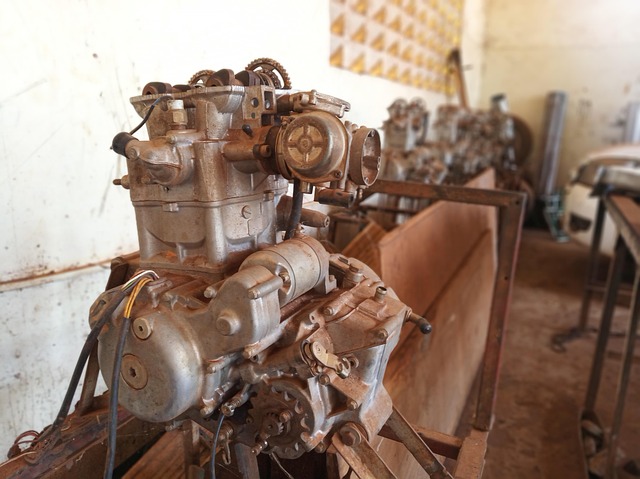
A highway collision center plays a pivotal role in roadside recovery, serving as a crucial first response to vehicle breakdowns and accidents. Their key roles encompass more than just towing stranded vehicles; they are the linchpin in ensuring safety, efficiency, and minimal disruption for drivers in need. These centers coordinate with emergency services, providing immediate assistance by attending to minor incidents on the side of the road. They also offer essential services like flat tire changes, battery boosts, and fuel deliveries, preventing further complications for drivers until more specialized help arrives.
On a deeper level, collision centers are responsible for effective vehicle recovery and transport. Trained personnel assess damage, secure vehicles for towing, and facilitate their safe transfer to designated repair facilities, including automotive body shops or collision repair centers. This seamless process ensures that each step of roadside recovery is handled with efficiency and expertise, ultimately contributing to a positive and stress-free experience for the affected drivers.
Modern Technologies and the Evolving Role of Highway Collision Centers
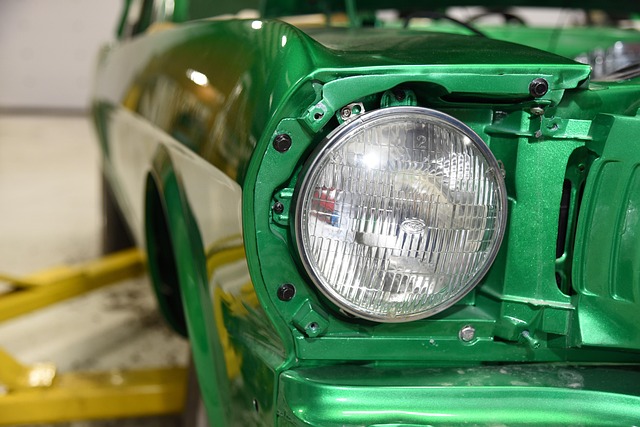
Modern technologies have significantly transformed the role of highway collision centers from mere repair shops to dynamic hubs of roadside recovery and safety. With advancements in equipment and digital systems, these centers are now equipped to handle complex auto body services more efficiently than ever before. GPS tracking, for instance, enables quick location and response times for emergencies, ensuring victims receive assistance promptly.
Additionally, the integration of digital design software and advanced welding machinery has revolutionized collision repair processes. This technology allows for precise measurements, accurate repairs, and seamless restoration of vehicles to their pre-accident condition. As a result, highway collision centers are not just fixing damages but also contributing to road safety by reducing downtime on the highway and ensuring safer vehicles on our roads.
Highway collision centers play an indispensable role in roadside recovery, serving as the unseen heroes that ensure safety and convenience on our highways. From understanding complex needs to leveraging modern technologies, these centers continue to evolve, providing swift and efficient assistance during unexpected events. Their key roles, including damage assessment, towing, and coordination with emergency services, make them essential components of any comprehensive roadside assistance program. As technology advances, highway collision centers adapt, offering enhanced services that benefit drivers across the globe.
